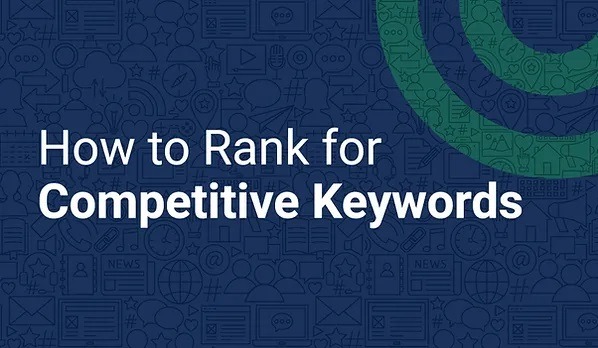Whether you’re involved in SEO from an agency or in-house perspective, you’ve probably encountered the request to achieve top search result rankings for keywords that are currently dominated by significant competitors or established entities.
The positive aspect is that these giants can’t simply outspend you to secure a higher ranking than you. However, the downside is that conventional SEO strategies are unlikely to suffice for achieving top search result positions in such scenarios.
So, how can you transcend the typical SEO approach and gain a competitive edge?
The solution lies in a comprehensive analysis of competition, keywords, and your target audience. Implementing a robust methodology will enable you to identify the unique value your business brings to the table, something that hasn’t been explored in the ongoing discourse.
In this article, we delve into the strategies required to pursue this objective – illustrating how to attain increased traffic, and simultaneously elevate your brand’s visibility in the process.

How To Rank for Highly Competitive Keywords
Imagine you are part of a dynamic and innovative CRM company striving to carve out a niche in a market largely dominated by Salesforce, HubSpot, and similar giants.
Beyond just contending with these industry leaders on the broader CRM-related terms, you’re also facing the challenge of surpassing platforms like G2 and articles like those on CNET in search rankings. These entities possess domain-level advantages that make the uphill battle even more challenging.
While the task might appear daunting due to the competition, there’s no reason to be discouraged. Instead, your approach should involve a systematic evaluation of where you can establish a distinctive presence. Start by analyzing:
- The content they are producing.
- The structure of their webpages aimed at ranking for specific keywords.
In the case of competitors, especially, there’s valuable information to glean:
- The target audience they are focusing on.
- How their product features are tailored to address the challenges faced by that particular audience.
By undertaking an insightful mapping exercise of your competitors and their ideal customer profiles, you’ll uncover opportunities that lie ahead. Given that you likely have a distinct audience in mind, your strategy can be geared towards addressing a different set of needs and aspirations.
What type of keyword research can provide you with traction?
Using tools like Google Keyword Planner, Semrush, Ahrefs, and similar keyword planning resources can provide you with interconnected subjects and queries. Examining the Search Engine Results Page (SERP) itself allows you to explore sections like “People also ask” and suggested searches.
If fortune favours you, you might come across valuable insights that reveal the specific attributes and advantages that users are seeking as part of their initial queries. Further secondary keywords and themes can be extracted by analyzing conversations on platforms like Reddit, Quora, X (formerly Twitter), and potentially Threads (if they expand their hashtag usage beyond profile discovery).
Following this, the subsequent step involves delving into the psychology behind the search query. For instance, an individual searching for “CRM” might be in the exploratory phase, seeking an overview of available options and functionalities. Consequently, your content strategy could encompass resources like a comprehensive buying guide or an article on the evolution of CRM features.
In contrast, a query such as “free CRM trial” signifies much closer proximity to the actual purchase decision. This implies that content with a more transactional nature should be prioritized.
Irrespective of the perceived intent, it’s important not to assume that other brands listed on the Search Engine Results Page (SERP) have interpreted the query in the same manner for their ranking content. If none of them have, this presents a valuable opportunity for your brand to distinguish itself.
Collaborate with your internal teams to conduct audience analysis
A wellspring of insight that surpasses anything available online lies within your clients or colleagues in product development and sales. Share your research findings with them and inquire about their perspectives.
This process can lead to either the affirmation of your approach or the revelation of unexpected insights, which can enable you to create distinctive content that forges connections in ways your competitors haven’t achieved.
To illustrate this point: one of my clients had a keyword related to their product that featured the term “precision.” This keyword held immense value for them and was a crucial concept for their target audience. Upon conducting competitive research, the outcomes were typical: prominent websites, direct rivals, and review platforms at the top of the Search Engine Results Page (SERP).
However, none of the existing content truly delved into the concept of “precision” within the context of the keyword. The term was often conflated with accuracy and detail. I engaged with the product engineers on the client’s team. Despite confirming the lack of accurate context in the existing content, even they couldn’t reach a consensus on the precise meaning of the term.
What began as an endeavour to create bottom-of-funnel content transformed into a project to craft a top-of-funnel piece centered around defining “precision” itself. This strategy aimed to establish an authority that was notably absent within the domain. Remarkably, the resulting piece rapidly ascended the SERP rankings alongside industry giants just a couple of weeks after its launch, leading to immense satisfaction from the client.
Consider Taking an Alternate Approach
However, not all breakthroughs will be as straightforward and neat. Be prepared to generate momentum by leveraging longer-tail keywords and catering to narrower audiences that can serve as a foundation for future expansion.
With each keyword or audience, consider creating a dedicated webpage, and as you grow, these individual pages can collectively form a cohesive entity.
Another strategy to incorporate involves off-page signals, particularly from organic social media. This approach can trigger discussions and stimulate interest in your unique perspective on the keyword theme. While it may not guarantee success every time, it’s certainly worth experimenting with and testing its effectiveness.
How To Target Competitive Keywords with Audience Analysis
Receiving a directive to secure rankings for particular keywords might initially come across as an impractical demand, especially when the person giving the instruction lacks complete context. From my perspective, this directive could be viewed as an opportunity. By posing a few additional questions, you can unveil the precise business objectives your client or colleague aims to attain through enhanced rankings.
This realization underscores the significance of the task ahead. By adopting a sophisticated approach to your strategy, the ensuing progress is likely to be warmly received and met with optimism.
Would you like to read more about how to rank for highly competitive keywords related articles? If so, we invite you to take a look at our other tech topics before you leave!
Use our Internet marketing service to help you rank on the first page of SERP.










